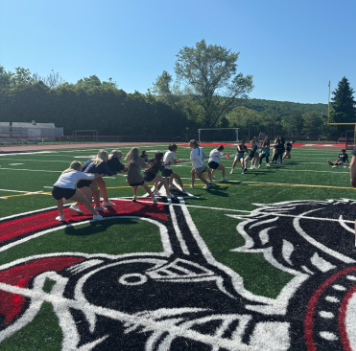When Do You Become an Adult?
An adult is defined as a “person who is fully grown or developed.” This usually refers to a person’s physical growth, but also has to do with their mentality as their age increases. Because of this, it can be agreed that some “adults” are just about as mature as a 13 year old boy. The same can go for children who take on the traits and dispositions of a full grown adult at a young age. So if this is all true, what determines when you officially become an adult?
Determining when a person is fully matured cannot be easily labeled with a single number. Everyone is their own individual being, and follows their unique path of growth, even if they are technically fully grown at the age of 18. A person’s maturity can be affected by many altering factors, such as their childhood, the way they were raised, a specific event, a mental condition, or anything that might have an impact on a person. This varies for everyone, so it would be unfair to assume the age of 18 marks the time when someone is completely developed and mature.
Trauma, the prolonged emotional response as a result of a traumatic event, is typically one of the reasons that force a person to mature. A person’s sense of self and mental well being is dictated by that person’s experiences and emotions throughout their life. For example, if a person is raised in a harsh environment, it might have long term effects and force them to grow up faster. When in the event of strong and demanding emotions, either from an experience or other event, a person can be left with lasting and enduring emotions that make them feel less like a child or less filled with the happiness and wonder childhood welcomes. A large majority of people will probably argue trauma that has aged them, or has had a lasting impact on their life.
However, why assume the position that individuals take on the matter? In randomized interviews with students and staff from LRHS, many had their own take on when it is appropriate to label a person an adult.
Teachers in LRHS, such as Mr. Cole Lankford, business teacher, and Ms. Keri Ecker, history teacher, gave their opinion on the matter and when they think an individual is officially an adult. In an interview with the Lancer Ledger, Mr. Lankford said he does not think “anyone becomes an adult at an exact age…if someone is self-sufficient and fully capable of taking care of themself and their development, say at the age of 15, they might be an adult at the age of 15.” He goes on further to say he knows “some adults who are 40 years old” who he would not consider adults since “they might not be capable of taking care of themselves or further advancing their lives.” On the other hand, Ms. Ecker stated in an interview that being an adult “depends on when you can take care of yourself. If you are still fully reliant on parents, guardians, or other people, then you’re not fully an adult.” In her opinion, adulthood often begins “during college and after” or when a person has “ [their] first job, and once [their] paying [their] own bills.”
Students in Lakeland have also formulated their own opinions on the matter. When asked “When do you become an adult and why?” In an interview with Alice Strom, freshman, she responded, “When you’re forced to have responsibility and maturity in your life.” Another freshman, Lyla Tonuzi, has also given her input, “I think you become an adult when you start becoming responsible for your finances, where you live, what you eat; basic needs like that.”
It’s safe to say that staff all the way to freshman have similar opinions; an “adult” is not determined by an age, but by the level of maturity an individual possesses, and the ability one has to take care of oneself. No singular age can determine when a person is able to be “mature” or considered “grown up”. This experience varies for everyone, which can be seen in many instances within life.
Therefore, why is a person an “adult” at the age of 18?

Taylor is a freshman at LRHS. She joined journalism as an elective because she is very passionate about writing and hopes to be able to become a better...












